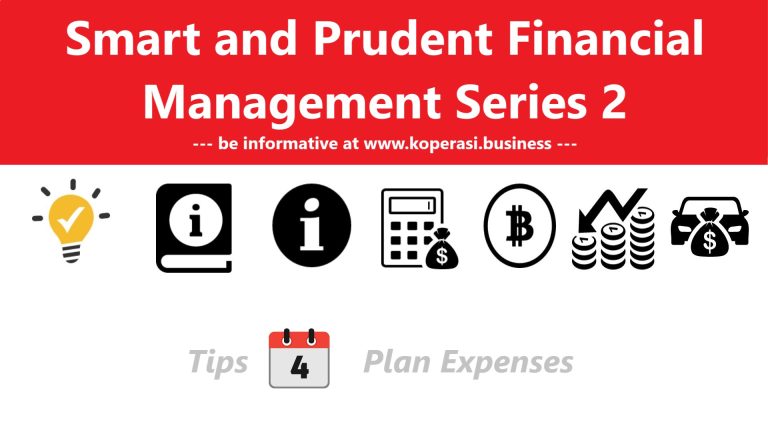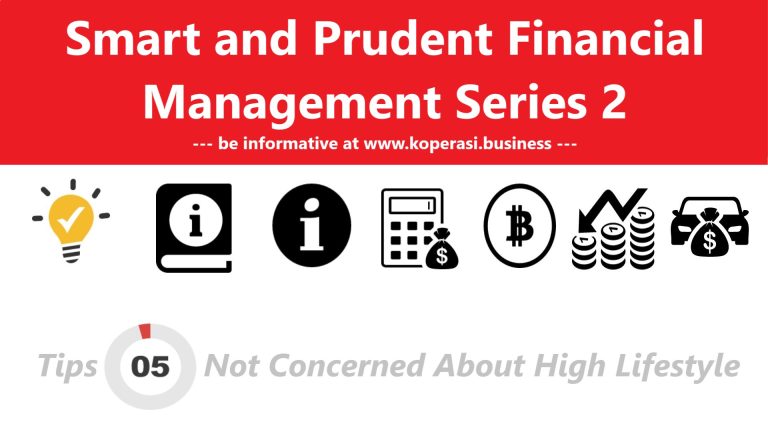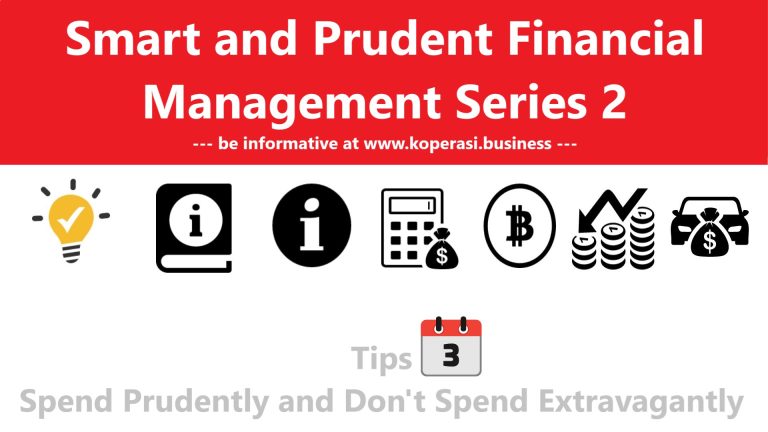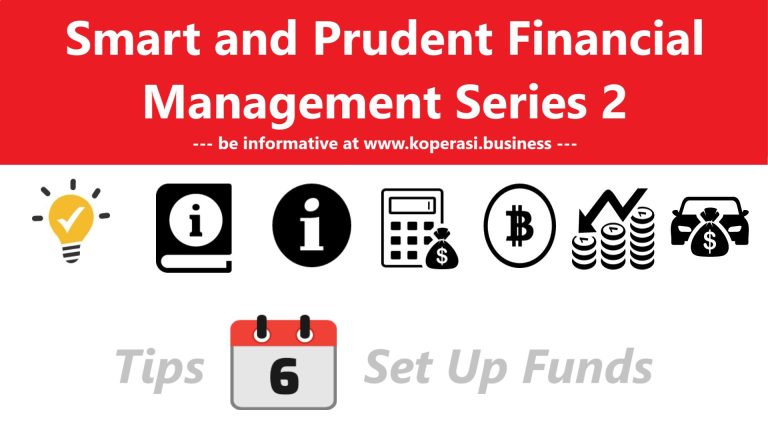Smart and Prudent Financial Management Series 2
In Smart and Prudent Financial Management Series 2, the third step you need to follow is Spend Prudently and don’t spend extravagantly. Not necessarily cheap stuff is a prudent way. Similarly, buying expensive items does not mean that we are not prudent in spending. Everything will be explained in this entry.
Smart and Prudent Financial Management Series 2 – Spend Prudently and Don’t Spend Extravagantly
The third step you need to know in Smart and Prudent Financial Management Series 2 is Spend Prudently and Not Spend Wastefully. Many have heard this word but do not understand how to do it. Spending prudently means you don’t spend extravagantly. For example you have identified 2 stores to buy vacuum cleaners. Shop A sells for USD1,200. While Shop B offers the same price of USD1,200 but offers a 50% discount for the same second item.
If you are a savvy buyer, you should evaluate in many aspects such as the need to buy another vacuum cleaner, the size of your home and other factors. Many are affected and continue to buy at Shop B which offers bulk deals. In the end, you pay USD1,800 to buy 2 vacuum cleaners for your small home use.
While it looks like this purchase is profitable, but in fact you have spent extra money that you should be able to use to repair the vacuum cleaner in case of damage later on. This is one of the subtle ways for us to spend more and the goal of not spending extravagantly is impossible to do.
Smart and Prudent Financial Management Series 2 – Plan Expenses

The fourth step in Smart and Prudent Financial Management Series 2 is to Plan Expenses. It’s hard to plan because a lot of unexpected things will happen every day. Among the benefits of Smart and Prudent Financial Management Series 2 is to Plan Expenses are as follows:
- You can list urgent, important needs with more confidence.
- You can get through your days without thinking about lack of money.
- You are not burdened with a high monthly commitment.
For example, you can make a deduction of USD50 per month from your total monthly expenses to be used on Aidilfitri celebration next year. You can just stay at home for the third week of the weekend and enjoy your weekend by watching television. This can save more than USD50.
You can plan expenses in various forms as follows:
- Plan daily expenses
- Plan monthly expenses
- Plan annual expenses
Plan Daily Expenses
It is not difficult to plan your daily expenses. For example, you can bringUSD20 to the office where the money is used for breakfast, lunch and afternoon tea. Automatically if you set in mind you can only spend max USD20 per day, you will become a disciplined person and the result is you will not complain of no money at the end of the month.
Plan Monthly Expenses
You can’t practice the way most other people do like eating out with the family when payday arrives. This is because this situation if you follow it is feared will bring a bad risk if there is an emergency to spend money during the month.
Ideally if you plan to have a meal with the family, money that should have been spent at the beginning of the month can be saved and used at the end of the month or on the next payday come in. This also makes you a patient person in doing one action even if you do good things that are not contrary to religious teachings.
Plan Annual Expenditures
If you can already get used to planning daily and monthly expenses, now you have moved on to the next phase which is plan annual expenditures.
For example, if you want to buy a new car, you have to pay an expensive insurance premium the following year. Maintenance costs are also expensive as you need to go to an authorized service center. So plan your annual expenses well, that is, if the laptop installment debt or personal loan debt has expired, then you use the excess monthly installment to buy other necessities such as buying a new car and do not have to worry about paying expensive car insurance premiums.
Smart and Prudent Financial Management Series 2 – Not Concerned About High Lifestyle

After you know how to spend prudently and plan expenses, the fifth step in Smart and Prudent Financial Management Series 2 is that you must be good at distinguishing your lifestyle pattern that is Not Concerned About High Lifestyle. If you don’t have a big income, don’t try to be like ‘someone’ who is rich and can buy anything. Different person even with your co -workers have the same rank, but there is still a difference.
For example, if you are an executive who earns USD3,000 a month, you cannot live the same lifestyle as your friend who is also an executive and earns the same salary as you. Many external factors need to be taken into account such as side income, rich family background, having a working wife, many children, little debt burden and so on.
If all that is taken into account, you are likened to ‘stepping on the real earth’ for not imitating the high lifestyles of your friends.
Smart and Prudent Financial Management Series 2 – Set Up Funds
The sixth step that you must follow in Smart and Prudent Financial Management Series 2 is to set up fund. Many people take it lightly and assume the monthly salary is enough and there is no need to save money and be frugal. Try to imagine if you have been laid off or you have an accident that is unable to work anymore due to health problems. accident or the like.
Where is the money for medical costs and covering life without work? Many fail at this stage. You can provide funds for necessities that must be contributed every month, namely holiday funds, car insurance payments, apartment maintenance, holiday savings etc. Indirectly this way can curb from high buying desires that end up wasting your money.
Hashtag / Keywords
#FinancialManagement

